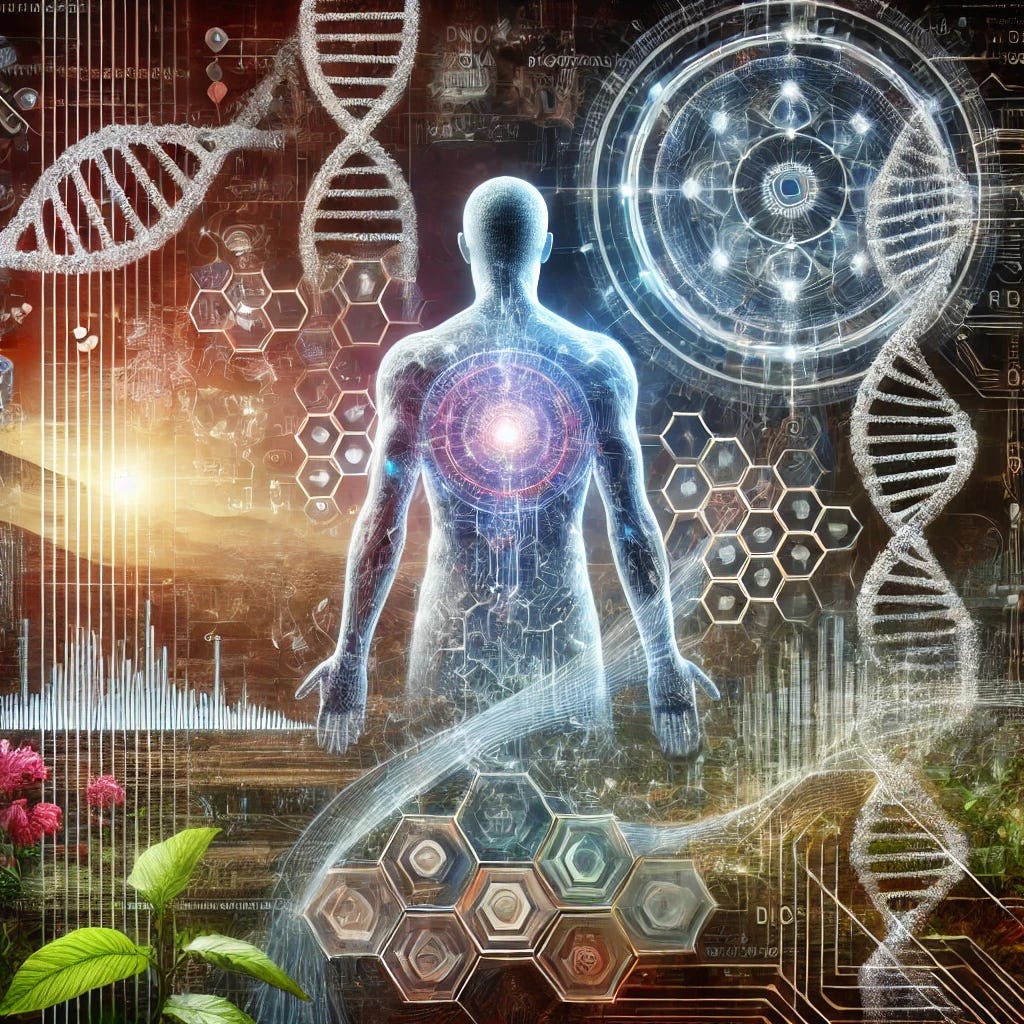In our pursuit of merging biology with technology, we must tread carefully, for the line between enhancing life and controlling it grows thinner with every step
Biodigital convergence refers to the increasingly intertwined relationship between biological systems and digital technologies. This concept is about how advancements in biotechnology, digital technology, and data science are merging to create new possibilities that were previously unimaginable. Biodigital convergence encompasses a wide range of developments, from healthcare to agriculture, and even in social and ethical realms.
Key Aspects of Biodigital Convergence:
Integration of Digital and Biological Systems:
Biological Data and Digital Platforms: Advances in genomics, proteomics, and other biological sciences are generating vast amounts of data, which are analyzed using powerful digital tools like artificial intelligence (AI) and machine learning. This allows for personalized medicine, precision agriculture, and more.
Wearables and Implantables: Devices like smartwatches, biochips, and implantable sensors that monitor health in real-time are examples of how digital technologies are being integrated with the human body.
Manipulation of Biological Processes with Digital Tools:
Gene Editing and Synthetic Biology: Technologies like CRISPR and synthetic biology allow scientists to edit genes and create new organisms, often guided by digital models and simulations.
Digital Organisms: In some futuristic scenarios, biological organisms might be designed and controlled through digital interfaces, enabling precise control over biological processes.
Blurring of the Boundaries Between Digital and Biological Entities:
Bioinformatics and Computational Biology: The use of computational methods to understand and simulate biological processes blurs the line between the physical biological world and the digital virtual world.
Cyborgs and Bio-enhancements: The concept of cyborgs—humans enhanced with digital and mechanical parts—illustrates the blending of biological life with digital technology.
Implications for Society and Ethics:
Privacy and Security: With biodigital convergence, issues such as data privacy, especially concerning genetic and health information, become increasingly important.
Ethical Considerations: The ability to edit genes, create synthetic life forms, or enhance human capabilities raises ethical questions about the nature of life, human identity, and the potential for inequality.
Applications in Various Fields:
Healthcare: Precision medicine, where treatments are tailored to an individual’s genetic makeup, and the use of AI to predict disease outcomes, are key examples of biodigital convergence in healthcare.
Agriculture: Digital farming tools that monitor crop health through sensors and drones, combined with genetically engineered crops, illustrate biodigital convergence in agriculture.
Environmental Monitoring: The integration of biological sensors with digital networks can monitor and respond to environmental changes in real-time.
Conclusion:
Biodigital convergence represents a transformative shift in how we interact with and understand biological systems through the lens of digital technology. As these technologies continue to evolve, they will bring about significant changes in various sectors, while also raising important questions about privacy, ethics, and the future of humanity.




